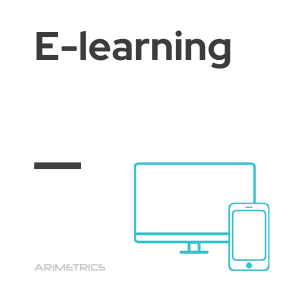Definition:
E-learning (electronic learning), electronic learning in Spanish, refers to the learning process that takes place within the internet and in which technological tools are used as support.
This type of learning is interactive because there is the possibility of communicating with teachers or with other students in the format of live classes.
There are also deferred courses, with classes recorded on video and uploaded to the online school, so that the student can do the course on their own and at their own pace.
A brief history of E-learning
The term E-learning for this type of learning, as we know it now, was coined in the US in 1996 although years ago the first LMS (Learning Management System) had already begun to be developed and used in several American universities.
Nowadays e-learning is a system on the rise due to the convenience that online training means for both students and teachers.
Advantages
In the E-learning method you can find courses in which there is no predetermined time for learning. Which means the learner can go at their own pace and take their time.
Being online courses, the scope it has is usually global.
The supports in which these courses can be done are several, since the learning can be done with mobile devices, tablets and computers.
E-learning has revolutionized the world of
Digital Marketing
since it has brought with it a large volume of traffic from users willing to acquire knowledge.
E-Learning Platforms
To create a virtual classroom we have several LMS managers available, some of them open source:
- Sensei: The most used complement by academies. It is the reference manager within the LMS sector for WordPress,one of the most used web content managers.
- Learn Dash: They are Sensei’s direct competition within the sector. Learn Dash is paid and has some basic features very similar to Sensei.
- Learn Press: With this manager you can create a basic virtual classroom. It is the least used of these three.
Examples of online course portals
On the student side, there are countless portals where online courses are offered and can be free or paid:
- Domestika: It is a platform of courses oriented mainly to marketing, advertising, graphic design and illustration. The courses are paid, but they are economical and have a membership option with which discounts are obtained on the courses.
- Udemy: They are Domestika’s direct competition within the sector. These courses are also paid and focus mainly on business and productivity. They have a wide range of courses for programmers.
- Prospera Courses: Free online education platform. Its courses are within the occupational training plan of the SEPE.

